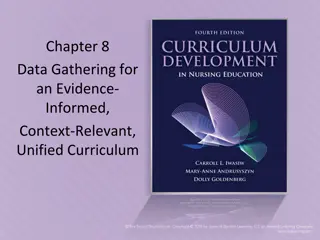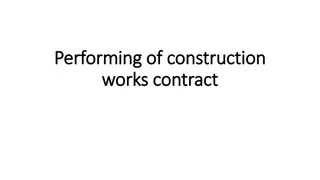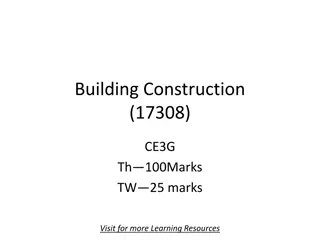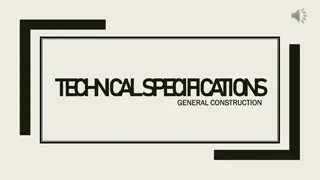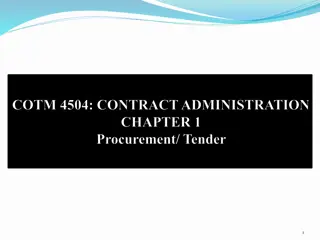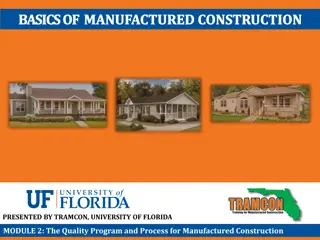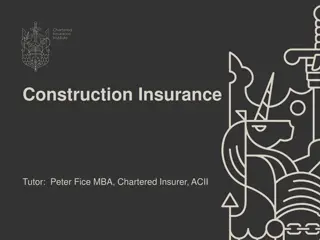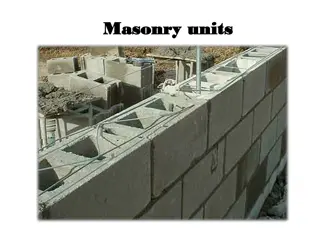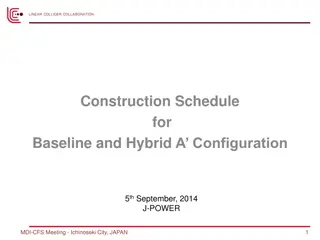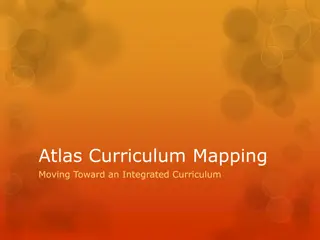Understanding Curriculum and Principles of Curriculum Construction
Curriculum is the core of the school system, facilitating the transmission of knowledge from teachers to students. It encompasses the courses, activities, and learning environment provided to pupils. Principles of curriculum construction include child-centeredness, individual differences, co-relation of subjects, community-centeredness, flexibility, utility, training for leisure, and comprehensiveness. Curriculum design should consider the needs and interests of students while preparing them for future roles in society.
Download Presentation

Please find below an Image/Link to download the presentation.
The content on the website is provided AS IS for your information and personal use only. It may not be sold, licensed, or shared on other websites without obtaining consent from the author. Download presentation by click this link. If you encounter any issues during the download, it is possible that the publisher has removed the file from their server.
E N D
Presentation Transcript
Meaning of Curriculum And Principles of Curriculum Construction By Mr Dhananjay Deka Assistant Professor Deptt. Of Education Khoirabari College Khoirabari Assam
Meaning of Curriculum Curriculum is an integral part of the school system which facilitates a teacher to transfer his thoughts to the student. curriculum means the course of studies offered in an educational institution. Etymologically, the word curriculum is a latin derivation from the word currere which means to run or race course . From this derivation curriculum means a course to be run for reaching a certain goal or destination. In this sense, education is considered as a race, with its aims as the goal, the curriculum as the course, leading to the goal. In simple word
In the words of Bent and Kronenbur, Curriculum in its broadest sense, includes the complete school environment, including all the courses, activities, reading and associations furnished to the pupils in the school.
Principles of Curriculum construction Any construction should be designed according to certain plans, principles, procedure, need or utility. The curriculum should also be designed according to some principles these are as follows: Principle of child centredness:- Modern education is said to be child centric. Therefore, the curriculum should be constructed keeping in view the present needs, requirements and circumstances of the child. A child should be provided with meaningful experiences as they are more important for a child than instruction.
Principles Principle of individual difference :- Every child differs from the other in his aptitude, ability and interests. The curriculum should be constructed according to the needs and interests of the children. The Principle of Co-relation :- The different school subjects should not be taught in water tight compartments. Fullness of experiences should be provided with maximum co-ordination and integration between curriculum activities. and co-curricular Principle of Community Centredness:- A Child is a future member of the society. Therefore, education should prepare the child for becoming a successful member of the community.
Principles. Principle of flexibility:- The curriculum should be flexible and dynamic. It should change with the change in time. Principle utility:- Work experience, technical and vocational subjects should be included in the curriculum to make it practical and useful. Principle of Training for leisure:- The curriculum should be so designed as to train the students for utilizing their leisure time use fully. Provisions should therefore be made for co- curricular activities. Principle of comprehensiveness :- The curriculum should be comprehensive in nature so that it can meet the different needs of the individual and the community. A wide variety of subjects should be included in it so that the students can select subjects according to their needs and abilities.
Principles. Principle of creativity:- Curriculum should also include such subjects which helps the child to develop his creative powers. The development of these powers will enable the child to modify his environment according to the need of time. Principle of integration :- Various educative experience that the child gains in course of his living need to be integrated. The different school activities should not be treated in water tight compartments. Maximum co-ordination and integration should be provided between curricular and co-curricular activities. Above the discussion we can say that curriculum is one of the most important aspect of our education system. So, the curriculum should be designed according to some proper principles. That s all today.




